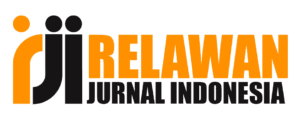Urgency in Urban Flood Disaster Mitigation: Response and Policy Initiation by Makassar City Government
Abstract
This study examines the urgency and efforts to mitigate urban flood risk in Makassar City by identifying the factors that cause high flood risk and analyzing the steps taken by the government. This research method uses a qualitative approach. The data collection stage involves interviews, observation, and document review. The data obtained is then transferred into an analysis tool for data coding using Nvivo 12 Plus. The research findings indicate that Makassar City faces a significant risk of flooding caused by high rainfall, increasingly extreme climate change, rapid population growth, poor land use change, and ineffective water management. Makassar City Government has responded by increasing budget capacity, improving drainage systems, developing early warning systems, conducting public awareness campaigns, and adopting cross-sectoral cooperation. This study can become policy recommendations in the future with a focus on expanding drainage infrastructure, more coordinated spatial planning, monitoring climate change, increasing public awareness, and strengthening inter-agency collaboration.
References
Abass, K., Buor, D., Afriyie, K., Dumedah, G., Segbefi, A. Y., Guodaar, L., Garsonu, E. K., Adu-Gyamfi, S., Forkuor, D., Ofosu, A., Mohammed, A., & Gyasi, R. M. (2020). Urban sprawl and green space depletion: Implications for flood incidence in Kumasi, Ghana. International Journal of Disaster Risk Reduction, 51, 101915. https://doi.org/10.1016/j.ijdrr.2020.101915
Ahmed, N., Hoque, M. A. A., Howlader, N., & Pradhan, B. (2022). Flood risk assessment: role of mitigation capacity in spatial flood risk mapping. Geocarto International, 37(25), 8394–8416. https://doi.org/10.1080/10106049.2021.2002422
AlQahtany, A. M., & Abubakar, I. R. (2020). Public perception and attitudes to disaster risks in a coastal metropolis of Saudi Arabia. International Journal of Disaster Risk Reduction, 44, 101422. https://doi.org/10.1016/j.ijdrr.2019.101422
Amarnath, G., Amarasinghe, U. A., & Alahacoon, N. (2021). Disaster risk mapping: A desk review of global best practices and evidence for south asia. Sustainability (Switzerland), 13(22), 12779. https://doi.org/10.3390/su132212779
Baharuddin, T., Nurmandi, A., Qodir, Z., & Jubba, H. (2022). Bibliometric Analysis of Socio-Political Research on Capital Relocation: Examining Contributions to the Case of Indonesia. Journal of Local Government Issues (LOGOS), 5(1), 17–31. https://doi.org/https://doi.org/10.22219/logos.v5i1.19468
Bark, R. H., Martin-Ortega, J., & Waylen, K. A. (2021). Stakeholders’ views on natural flood management: Implications for the nature-based solutions paradigm shift? Environmental Science & Policy, 115, 91–98. https://doi.org/https://doi.org/10.1016/j.envsci.2020.10.018
Bosseler, B., Salomon, M., Schlüter, M., & Rubinato, M. (2021). Living with urban flooding: A continuous learning process for local municipalities and lessons learnt from the 2021 events in Germany. Water (Switzerland), 13(19), 1–19. https://doi.org/10.3390/w13192769
Danhassan, S. S., Abubakar, A., Zangina, A. S., Ahmad, M. H., Hazaea, S. A., Ishak, M. Y., & Zhang, J. (2023). Flood Policy and Governance: A Pathway for Policy Coherence in Nigeria. Sustainability (Switzerland), 15(3), 1–24. https://doi.org/10.3390/su15032392
Fatir, M. D. (2023, February 17). BPBD: Korban banjir di Kota Makassar bertambah menjadi 1.366 jiwa. Antaranews.Com. https://bit.ly/3zpMP2v
Gimenez-Maranges, M., Breuste, J., & Hof, A. (2020). Sustainable Drainage Systems for transitioning to sustainable urban flood management in the European Union: A review. Journal of Cleaner Production, 255, 120191. https://doi.org/10.1016/j.jclepro.2020.120191
Graham, H., White, P., Cotton, J., & McManus, S. (2019). Flood- and weather-damaged homes and mental health: An analysis using England’s mental health survey. International Journal of Environmental Research and Public Health, 16(18), 3256. https://doi.org/10.3390/ijerph16183256
Hurlimann, A., Moosavi, S., & Browne, G. R. (2021). Urban planning policy must do more to integrate climate change adaptation and mitigation actions. Land Use Policy, 101, 105188. https://doi.org/https://doi.org/10.1016/j.landusepol.2020.105188
Jeong, J. Y., Kang, I., Choi, K. S., & Lee, B. H. (2018). Network analysis on green technology in national research and development projects in Korea. Sustainability (Switzerland), 10(4), 7–13. https://doi.org/10.3390/su10041043
Kuang, D., & Liao, K. H. (2020). Learning from Floods: Linking flood experience and flood resilience. Journal of Environmental Management, 271, 111025. https://doi.org/10.1016/j.jenvman.2020.111025
Kundzewicz, Z. W., Su, B., Wang, Y., Xia, J., Huang, J., & Jiang, T. (2019). Flood risk and its reduction in China. Advances in Water Resources, 130, 37–45. https://doi.org/10.1016/j.advwatres.2019.05.020
Lee, D. W. (2019). Local government’s disaster management capacity and disaster resilience. Local Government Studies, 45(6), 803–826. https://doi.org/10.1080/03003930.2019.1653284
Lee, Y., & Brody, S. D. (2018). Examining the impact of land use on flood losses in Seoul, Korea. Land Use Policy, 70, 500–509. https://doi.org/10.1016/j.landusepol.2017.11.019
Malik, I., Prianto, A. L., Abdillah, A., Rusnaedy, Z., & Amalia, A. A. (2021). Urban Resilience Strategy in The Climate Change Governance in Makassar City, Indonesia. Journal of Government and Civil Society, 5(1), 31. https://doi.org/10.31000/jgcs.v5i1.3884
Malik, I., Prianto, A. L., Roni, N. I., Yama, A., & Baharuddin, T. (2023). Multi-level Governance and Digitalization in Climate Change: A Bibliometric Analysis. In S. Motahhir & B. Bossoufi (Eds.), International Conference on Digital Technologies and Applications (pp. 95–104). Springer, Cham.
Mohanty, M. P., Mudgil, S., & Karmakar, S. (2020). Flood management in India: A focussed review on the current status and future challenges. International Journal of Disaster Risk Reduction, 49, 101660. https://doi.org/10.1016/j.ijdrr.2020.101660
Ntajal, J., Lamptey, B. L., Mahamadou, I. B., & Nyarko, B. K. (2017). Flood disaster risk mapping in the Lower Mono River Basin in Togo, West Africa. International Journal of Disaster Risk Reduction, 23, 93–103. https://doi.org/10.1016/j.ijdrr.2017.03.015
Phonphoton, N., & Pharino, C. (2019). A system dynamics modeling to evaluate flooding impacts on municipal solid waste management services. Waste Management, 87, 525–536. https://doi.org/10.1016/j.wasman.2019.02.036
Pour, S. H., Wahab, A. K. A., Shahid, S., Asaduzzaman, M., & Dewan, A. (2020). Low impact development techniques to mitigate the impacts of climate-change-induced urban floods: Current trends, issues and challenges. Sustainable Cities and Society, 62, 102373. https://doi.org/10.1016/j.scs.2020.102373
Qi, W., Ma, C., Xu, H., Chen, Z., Zhao, K., & Han, H. (2021). A review on applications of urban flood models in flood mitigation strategies. In Natural Hazards (Vol. 108, Issue 1). Springer Netherlands. https://doi.org/10.1007/s11069-021-04715-8
Rehman, J., Sohaib, O., Asif, M., & Pradhan, B. (2019). Applying systems thinking to flood disaster management for a sustainable development. International Journal of Disaster Risk Reduction, 36, 101101. https://doi.org/10.1016/j.ijdrr.2019.101101
Shah, M. A. R., Rahman, A., & Chowdhury, S. H. (2018). Challenges for achieving sustainable flood risk management. Journal of Flood Risk Management, 11, S352–S358. https://doi.org/https://doi.org/10.1111/jfr3.12211
Shi, L. (2020). Beyond flood risk reduction: How can green infrastructure advance both social justice and regional impact? Socio-Ecological Practice Research, 2(4), 311–320. https://doi.org/10.1007/s42532-020-00065-0
Singh, A., Sarma, A. K., & Hack, J. (2020). Cost-Effective Optimization of Nature-Based Solutions for Reducing Urban Floods Considering Limited Space Availability. Environmental Processes, 7(1), 297–319. https://doi.org/10.1007/s40710-019-00420-8
Tsai, M. H., Chang, Y. L., Shiau, J. S., & Wang, S. M. (2020). Exploring the effects of a serious game-based learning package for disaster prevention education: The case of Battle of Flooding Protection. International Journal of Disaster Risk Reduction, 43, 101393. https://doi.org/10.1016/j.ijdrr.2019.101393
Uddin, K., & Matin, M. A. (2021). Potential flood hazard zonation and flood shelter suitability mapping for disaster risk mitigation in Bangladesh using geospatial technology. Progress in Disaster Science, 11, 100185. https://doi.org/10.1016/j.pdisas.2021.100185
Vamvakeridou-Lyroudia, L. S., Chen, A. S., Khoury, M., Gibson, M. J., Kostaridis, A., Stewart, D., Wood, M., Djordjevic, S., & Savic, D. A. (2020). Assessing and visualising hazard impacts to enhance the resilience of Critical Infrastructures to urban flooding. Science of the Total Environment, 707, 136078. https://doi.org/10.1016/j.scitotenv.2019.136078
Vemula, S., Raju, K. S., Veena, S. S., & Kumar, A. S. (2019). Urban floods in Hyderabad, India, under present and future rainfall scenarios: a case study. Natural Hazards, 95(3), 637–655. https://doi.org/10.1007/s11069-018-3511-9
Venkataramanan, V., Lopez, D., McCuskey, D. J., Kiefus, D., McDonald, R. I., Miller, W. M., Packman, A. I., & Young, S. L. (2020). Knowledge, attitudes, intentions, and behavior related to green infrastructure for flood management: A systematic literature review. Science of The Total Environment, 720, 137606. https://doi.org/https://doi.org/10.1016/j.scitotenv.2020.137606
Wehn, U., Rusca, M., Evers, J., & Lanfranchi, V. (2015). Participation in flood risk management and the potential of citizen observatories: A governance analysis. Environmental Science and Policy, 48, 225–236. https://doi.org/10.1016/j.envsci.2014.12.017
Weichselgartner, J. (2001). Disaster mitigation: The concept of vulnerability revisited. Disaster Prevention and Management: An International Journal, 10(2), 85–94. https://doi.org/10.1108/09653560110388609
Yoon, D. K., Kang, J. E., & Brody, S. D. (2016). A measurement of community resilience in Korea. Journal of Environmental Planning and Management, 59(3), 436–460. https://doi.org/https://doi.org/10.1080/09640568.2015.1016142
Zhou, Y., Shen, D., Huang, N., Guo, Y., Zhang, T., & Zhang, Y. (2019). Urban flood risk assessment using storm characteristic parameters sensitive to catchment-specific drainage system. Science of the Total Environment, 659, 1362–1369. https://doi.org/10.1016/j.scitotenv.2019.01.004
Copyright (c) 2023 Journal of Governance and Local Politics (JGLP)

This work is licensed under a Creative Commons Attribution-NonCommercial-NoDerivatives 4.0 International License.










